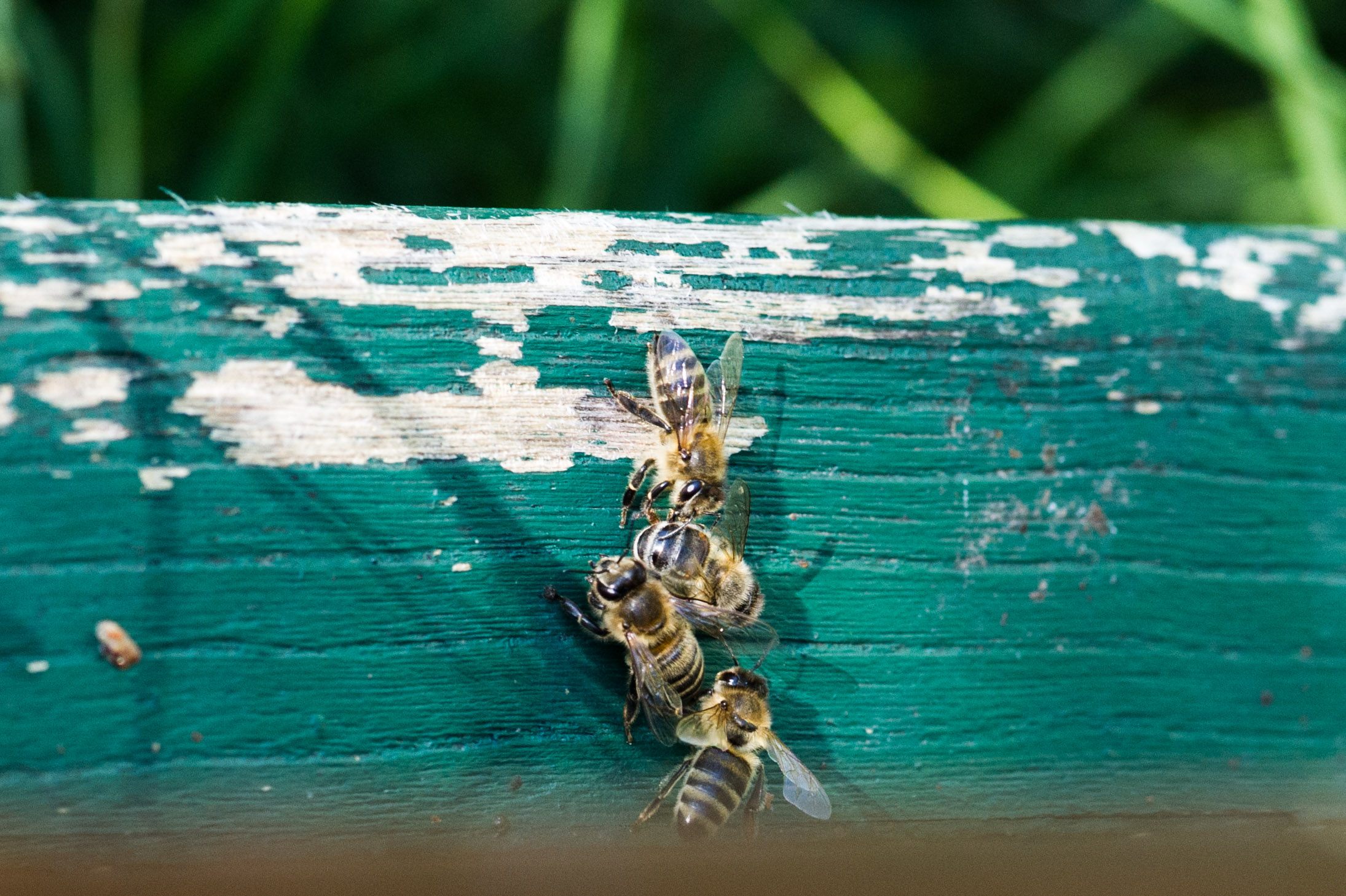Basically, we love our trees. The bacon pear trees as well as the yellow oils, the Williams or the congress pear. And of course everyone else. The Farthofer orchards are a diversity paradise. Only the trees do not get the flower pollination on their own. Apple and pear trees are not self-fertile. They need messengers. Carriers carrying the pollen from the blossom of one tree to another. This job is done by bumblebees and bees in an outstanding way. Reason enough for us to give the hard-working aviators a home. From spring, bee colonies populate our orchards.
We are primarily concerned with species conservation. Hardly any species is under such pressure as the bee at the moment. Diversity, because we want to have vitality and liveliness, in other words life, in our gardens. And the natural pollination of the flowers.
A signal to the politicians
It is also a political statement. On 22 March, the European Commission (and yet again) postponed the vote on the general ban on the use of highly toxic neonicotinoids in field applications. And although experts agree unanimously that these pesticides pose a serious threat to pollinators such as bees and butterflies. A clear presentation of the problem can be found here.
But the topic also concerns us sensory. Honey has always fascinated us. As a child Josef Farthofer was a thousand times better with honey than with a chocolate-nut-cream. Later, as a brandy nose, it was always too little for anyone to perceive honey tones. Which one? Blossom honey (if so, what blossom), forest honey, which tree, which shrub? If you find that exaggerated, smell a glass of O rum once. Or on a glass of Mostello. You will be astonished how many facets the honey shows in it.
Bee books for reading rats
For the time being, however, there will be no Farthofer honey. Our heart burns for burning and – figuratively speaking – we want to remain as a shoemaker at our bars. But the bees are busy. Therefore, here are two reading tips for the two glasses Rum and Mostello. There’s a startling book by Alison Benjamin and Brian McCallum: World without Bees. (Torchbearer Publisher) How dying of a species threatens our civilization. It’s all about the issues we decided to populate our gardens with. Bee diseases that are spreading to epidemics, shrinking diversity and the associated shrinking gene pool, pesticide attacks and the consequences of industrialized pollination. We want to counter that. The other is the exact opposite. A novel. A beautiful story of three families, divided over three centuries and linked by the history of the bees. So the book is also called: The story of the bees, by Maja (the author is called seriously so ;-) Lunde.
At least we are looking forward to the big summer hum.






